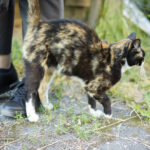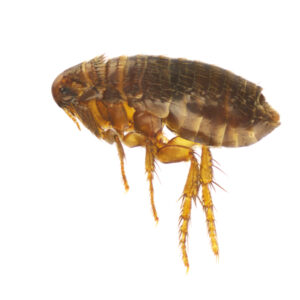
Need Help? Call Us On 0161 776 9832 For Expert Pest Control Advice On How To Identify Pest Infestations And Help Solve Your Pest Problem.
Youngs Pest Control Flea Treatments In Smithy Bridge
At Youngs Pest Control, we understand the difficulty of dealing with flea infestations. That's why we're here to help. We offer personalized pest control solutions for homes and businesses in the area. Our experienced technicians are committed to using safe and effective methods to eliminate fleas. We are a part of the National Pest Technician Association (NPTA) and have been in the industry for over 15 years, so all our work is of the highest standard.
offer personalized pest control solutions for homes and businesses in the area. Our experienced technicians are committed to using safe and effective methods to eliminate fleas. We are a part of the National Pest Technician Association (NPTA) and have been in the industry for over 15 years, so all our work is of the highest standard.
We at Youngs Pest Control are a local family-run business that strives to keep properties free of fleas for you and your family. Our technicians are experts in the field, so if fleas have taken over, don't hesitate to give us a call.
Some of the services we offer include :
- Flea eradication
- Inspections
- Treatments
- Follow up services
- Prevention Tips
Insects called fleas, which are wingless and feed on blood, are small parasitic insects. They can be found on dogs, cats, rabbits, rats, mice and other animals. Fleas can jump up to 150 times their body length and easily spread from one host to another. They lay eggs on the host animal, which fall off onto carpets, furniture or bedding, where they develop into larvae and eventually pupae before emerging as adult fleas.
A flea infestation can be a frustrating problem for pet owners and homeowners since fleas can cause itching and skin irritation for pets and people alike. Luckily if you live in the Smithy Bridge or surrounding areas, youngs pest control has you covered. We are a fully qualified pest company that are experts in flea eradication.
In what manner do fleas spread
How do fleas spread? They can hitch a ride on you or your pets, infest your home, jump from wild animals, and even cling to your clothing and personal items. Direct contact with an infested animal is one of the most common ways for fleas to spread. In addition, fleas are quick to jump onto any warm-blooded creature that crosses their path, so they can easily transfer from one host to another.
Infested environments are also breeding grounds for fleas. So if you have other pets in the house or if there has been a flea outbreak recently, chances are high that the environment is already infested with the parasite. The eggs laid by adult fleas hatch into larvae within days, and these larvae then feed on organic matter like skin flakes and dust until they form cocoons. These cocoons can remain dormant for months before re-hatching into adult fleas.
Wild animals like rats and squirrels can carry fleas too. They might not be frequent visitors to human homes, but if they do manage to enter your property, they could leave behind some unwanted guests - fleas! Thus it's important for homeowners to keep their gardens clean and free of debris, such as piles of leaves or firewood which may attract wildlife.
Is there a reason why fleas need to be treated?
Treating a flea infestation is crucial as the pests can rapidly reproduce, leading to an environmental infestation with potential health risks and causing irritation and discomfort for both humans and pets; in fact, female fleas can lay up to 50 eggs per day. It's essential to seek treatment for fleas as they can carry diseases such as typhus and tapeworms that can be transmitted to humans through bites. In addition, flea bites cause itching and scratching, leading to skin irritation and increasing the risk of secondary infections.
Flea allergy dermatitis is another reason why flea control is necessary. This allergic reaction occurs when a pet or human has an allergic reaction to flea saliva after being bitten by a flea. Symptoms include excessive scratching, hair loss, inflamed skin, and scabs. Left untreated can lead to infection and other serious health issues.
Lastly, rapid reproduction is a significant concern when it comes to flea removal. Female fleas are capable of laying hundreds of eggs in just one week; therefore, if left unchecked, an infestation can quickly grow out of control. By seeking professional flea treatments from Youngs Pest Control in Smithy Bridge promptly, you can effectively eliminate the problem before it worsens.
How professional flea treatments work for homes
When you hire a professional service for flea control, you can expect a friendly and discreet technician to arrive at your home and perform safe procedures that will give you peace of mind. The first step in the treatment process is an inspection of your home to determine the extent of the infestation. Once this is done, the technician will recommend a course of action based on your particular situation.
The next step in flea treatments is to treat your pets with an appropriate product recommended by the technician. Depending on size, weight, and age, this may be a topical application or an oral medication. It's important to follow their instructions carefully as some products require multiple applications over time. Additionally, they may suggest other measures, such as vacuuming frequently or treating outdoor areas where fleas are known to reside.
 Finally, the technician will treat your home using safe procedures that target fleas at all stages of their life cycle. This may involve applying chemical treatments or using natural solutions, depending on what has been agreed upon during the consultation. They will also advise you on how long these treatments take and when it is safe for you and your pets to return home.
Finally, the technician will treat your home using safe procedures that target fleas at all stages of their life cycle. This may involve applying chemical treatments or using natural solutions, depending on what has been agreed upon during the consultation. They will also advise you on how long these treatments take and when it is safe for you and your pets to return home.
Is there anything I need to do after treatment?
Now that the professional flea treatment is complete, you can take steps to ensure that your home remains a safe and comfortable living environment for both you and your pets. After the initial flea treatments, it's important to continue monitoring fleas and taking necessary measures to prevent their return. Here are some post-treatment steps you should follow:
- Wait 14 days before vacuuming, sweeping, or mopping your floors. This allows enough time for any remaining fleas or eggs to die off.
- Wash all bedding and clothing in hot water to kill any lingering fleas or eggs.
- Treat your pets with flea control products recommended by your veterinarian.
It's important to remember that flea control is an ongoing process. Even after treatment for fleas, new infestations can occur if proper precautions are not taken. To further prevent the recurrence of fleas, consider implementing these additional measures:
- Keep humidity levels low by opening windows or using a dehumidifier.
- Regularly groom and bathe your pets.
- Use preventative flea treatments on a regular basis as directed by your veterinarian.
Don't let fleas ruin your cosy home. Speak to Youngs today, and rest assured that you are in good hands.
We also service Neighboring areas like Rochdale and Littleborough.
OL15
